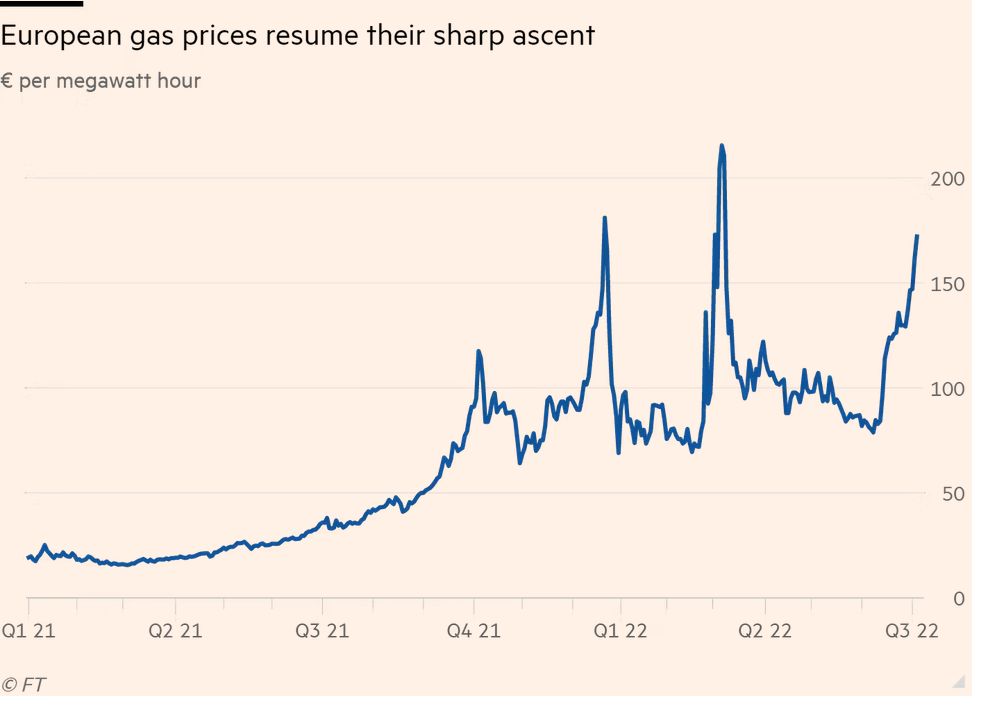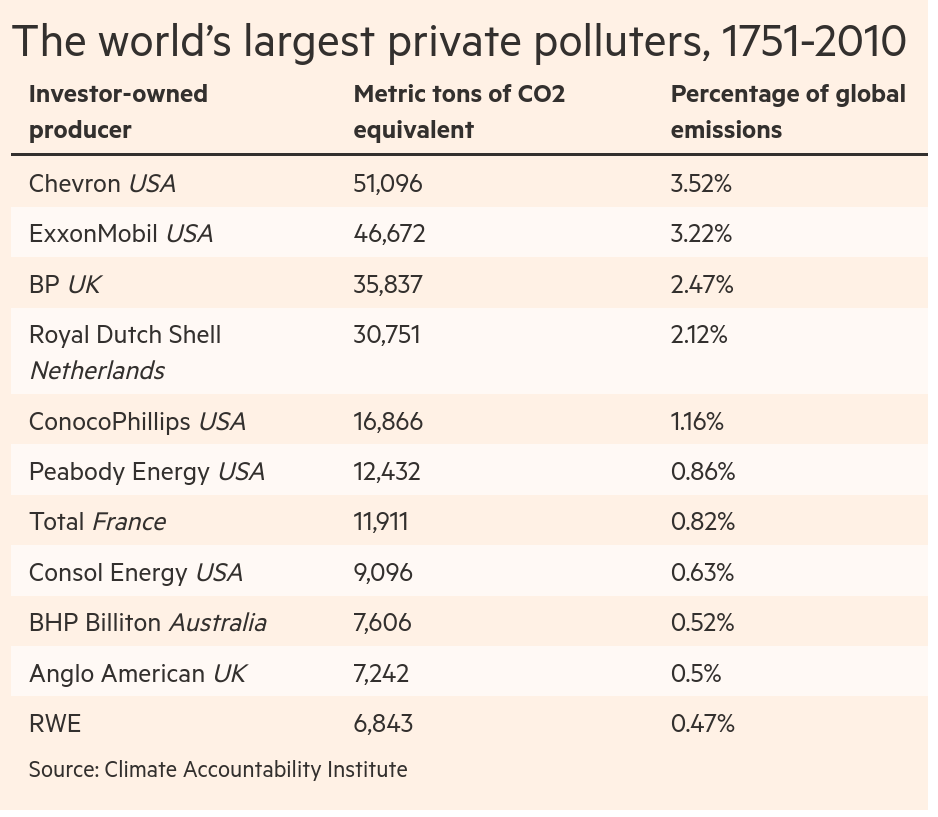July 5, 2022
Norway's Equinor workers strike
Oil and gas field workers are on strike in Norway. That's not going to help the supply issues. Good for them.
Biden puts out Tweets demanding gas market prices stop doing the thing that they are designed to do—a most bizarre thing. Oil companies are receiving an increase in financial investment because there is no where else to put your money to make a profit. No move by the rich countries to do much in the way of new investment in green energy.
It does feel that the only thing left to do is strike and demand more of the net revenue being generated. It will have more of an effect on profits than shouting into the twitter-sphere.
The strikes that began on Monday evening will affect 89,000 barrels of oil equivalent a day of production at fields on Norway’s continental shelf. The trade union is threatening more disruptive action in the coming days, which the Norwegian Oil and Gas Association has warned could cut the country’s daily gas exports by 13 per cent.

Goldman Sachs raised its forecast for TTF as it “no longer sees” a full restoration of gas flows from the Nord Stream 1 pipeline as the most probable scenario. It now sees TTF prices for €153 per MWh for the third quarter and €121 per MWh for the fourth quarter this year, up from €104 and €105 per MWh respectively.
Don't worry, if we don't look at climate change it won't happen right?
Italy Declares State of Emergency on Impact From Drought
- Glacial ice collapse in northern Alps kills at least seven
- Draghi links extreme events directly to climate change
The extreme conditions were underscored over the weekend when a glacial ice shelf in the northern Italian Alps sheared off amid a record high temperature of 10 degrees Celsius (50 degrees Fahrenheit) at the glacier’s summit.
- Alpine Avalanche Leaves 7 Known Dead, 13 Missing in Italy
Speaking of glaciers melting, they are melting even in Peru. There is a resulting lawsuit against RWE launched by a Peruvian farmer. It is a fun thought exercise to think that you can sue for damages of producing something that people use. I think that the suit is more clearly articulated as one against the use of their profits to fight against research showing how bad the stuff has been for humanity.

Other countries are joining these lawsuits to try to get some money to fund their transition costs (actually, to fund their mitigation processes, but we can dream bigger) where the failure of the UN COP26 stopped short of actually funding anything.
Antigua and Barbuda and Tuvalu established a group to discuss the prospect of suing countries for the effects of their emissions, among other things. The Commission of Small Island States on Climate Change and International Law plans to seek legal opinions from international courts and tribunals about whether they could bring such cases.
Unlike the RWE case, they are rooted in the idea of deception as the source of liability — that big polluters misled people about the effects of their carbon intensive products.
“As science comes to play an increasingly prominent role in [legal] cases, it’s very likely that fights over the science, and questions over whose science courts should believe, will increasingly become more prominent,” says Rupert Stuart-Smith, a University of Oxford researcher who has studied the glacier at the centre of the case, but is not affiliated with the suit.
Someone is going to pay for the effects of climate change. It is inevitable. The problem is that under capitalism there are few ways to make the proper people pay. It is called capital -ism for a reason.
The problem with all this is that it assumes we have lost. We should never confuse losing now with having lost.
Socialism
I have had several conversations with people regarding whether there is hope for the future and the fight against climate change. I think that folks should not give into the despair as despair and hopelessness are a tool of the companies and political forces that do not want change.
Change can come, it must. It may not come in time to stop some of the damage, but that doesn't mean there isn't lots we can do to prevent the worst or even the medium to mild impacts.
As socialists, and there is hope so long as there are socialists around, we know consumerism will not affect things. But, political mobilization is always possible and is happening.
Socialism has always been necessary and is not surprising that is more necessary with every passing year—it would not be necessary if this was not true.
Linking the fights against fascism, imperialism, climate change, pollution, inflation, poverty, homelessness, supply chains, pandemics, and famine/food shortages is essential. Which should not be hard since they all have a common cause.
Indeed, at some level, they all have a common solution, although the details matter.
The hope comes from looking around and realizing there is a sizable chunk of the population on this planet that want to do things better and are willing to experiment.
China is not getting it correct, but it has some of the pieces. Vietnam is not glorious, but it is doing alright on many things. Cuba is poor and sometimes sad, but generally heading in the correct direction. Kerala probably has it, they just need a better comms strategy so people hear about it.
There are many other examples even in the heart of empire if you look into the struggle.
The key, I think, is to stop fighting past battles and start fighting the battles that exist right now. That means putting forward real solutions no matter how communist-sounding they seem. Forget getting the perfect comms narratives, we cannot and should not exist at that level of the struggle—we just are not big enough for that to matter.
Tell people how it is, give them the correct solutions in clear language, and ask people to join the fight. Everything good in the history of ever has happened this way.
Public production of all the things that we need is about survival of the species now, and not only about stopping historical class, social, and marginal oppression.
Surely that should make our jobs easier.